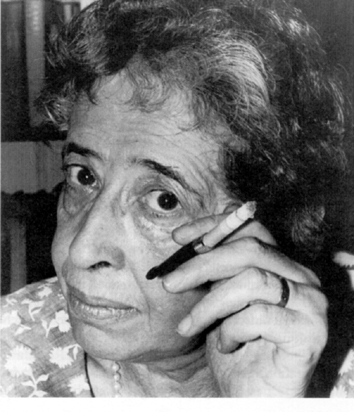Hannah Arendt - Thinking with an open heart
 In this post and this post, I praised my intellectual hero, Hannah Arendt. Here, I will write about one aspect of her thought.
In this post and this post, I praised my intellectual hero, Hannah Arendt. Here, I will write about one aspect of her thought. “that the only thing of importance is not philosophies but the truth, that one has to live and think in the open and not in one’s shell, no matter how comfortably furnished it is, and that necessity in whatever form is only a will-o’-the-wisp that tries to lure us into playing a role instead of attempting to be a human being. What I have personally never forgotten is your attitude – so difficult to describe – of listening, your tolerance that is constantly ready to offer criticism but is as far removed from scepticism as it is from fanaticism; ultimately it is simply the realization of the fact that all human beings are rational but that no human being’s rationality is infallible.” (DKJ 1994:213-4)
There are a number of important concepts here, which clarify Arendt’s politics and philosophy. There is a particular conception of the human which underlies her version of humanism: humanity as a unfinished project, an essay (“attempting to be a human being”), humans as universally rational but also fallible, limited.
There is a sharp critique of the totalitarian political implications of teleological isms and philosophical doctrines of necessity: we live unique lives, rather than playing a role in the grand narrative of Nature or History. (Later, in Eichmann in Jerusalem and essays like “Mankind and Terror”, Arendt would hone the idea of playing a role into the notion of the totalitarian “functionary”, who had not existence outside his function.)
And there is the very Arendtian concept of living and thinking in the open: openness in the multiple senses of publicity (living in an open space), risk (openness to one’s own intellectual fallibility), and tolerance, dialogue, friendship (openness to the other).


Comments